Why artificial quartz slab is good for kitchen countertop?
Unbeatable Durability & Strength:
Scratching: Stands up well to knives and everyday wear.
Chipping: More resilient than natural stone like granite or marble.
Impact: Handles the bumps and knocks of a busy kitchen.
Staining: Its non-porous nature (see below) is key here.
Engineered Composition: Made from 90-95% ground natural quartz (one of the hardest minerals on earth) bound together with 5-10% polymer resins and pigments.
Highly Resistant: This combination creates a surface incredibly resistant to:
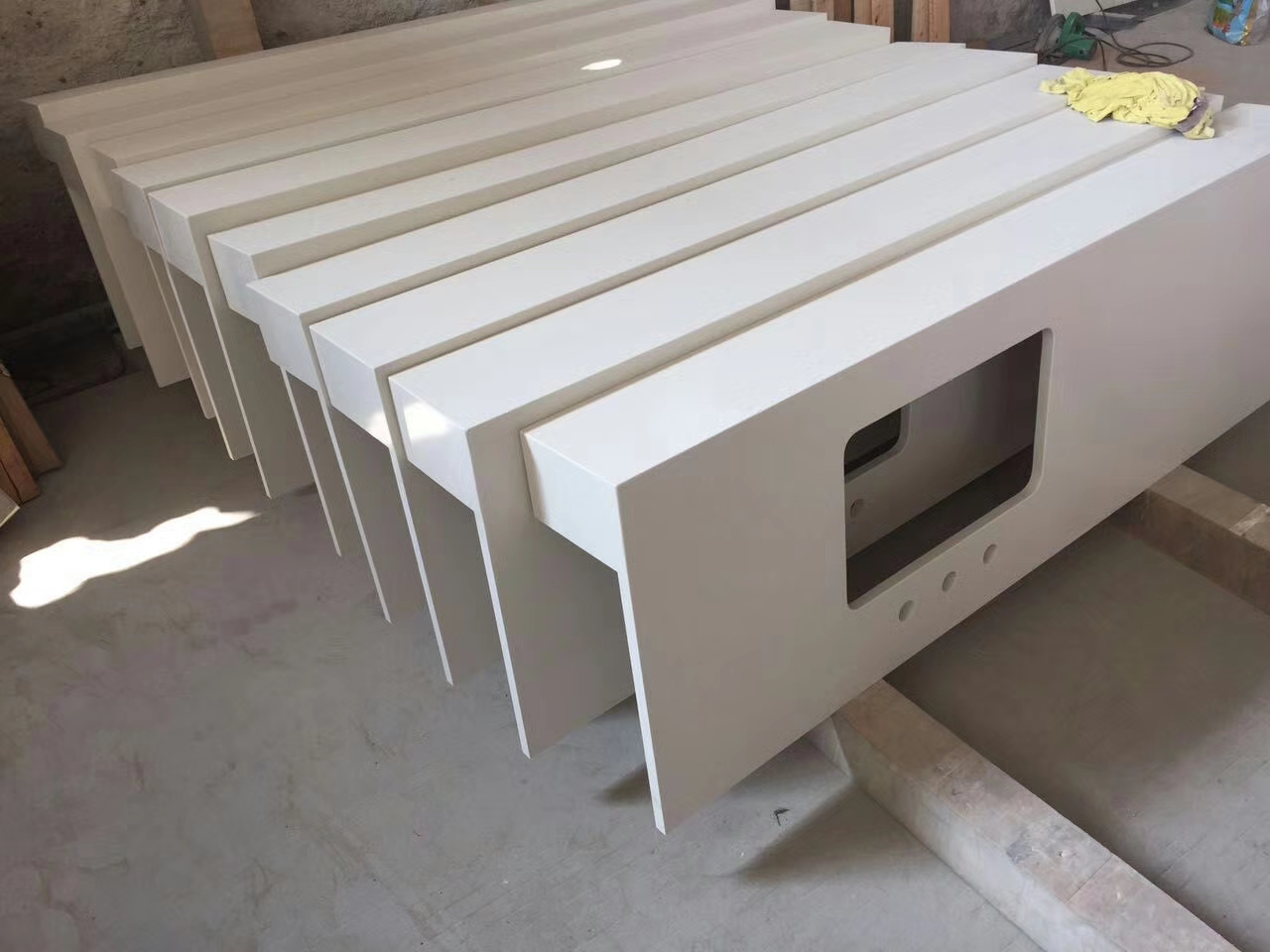
Non-Porous Surface (Huge Advantage):
No Sealing Required: Unlike granite or marble, quartz does not need to be sealed annually. The resin fills all the microscopic pores.
Stain Resistance: Liquids like wine, coffee, oil, juice, and vinegar cannot penetrate the surface, making staining virtually impossible if wiped up promptly.
Hygienic: The non-porous nature prevents bacteria, mold, and mildew from harboring within the countertop. This makes it exceptionally sanitary for food preparation.
Low Maintenance:
Simple daily cleaning with mild soap and water is all that's typically needed.
No special sealants or harsh chemicals required.
Resists common household cleaners (though avoid strong acids or harsh abrasives).
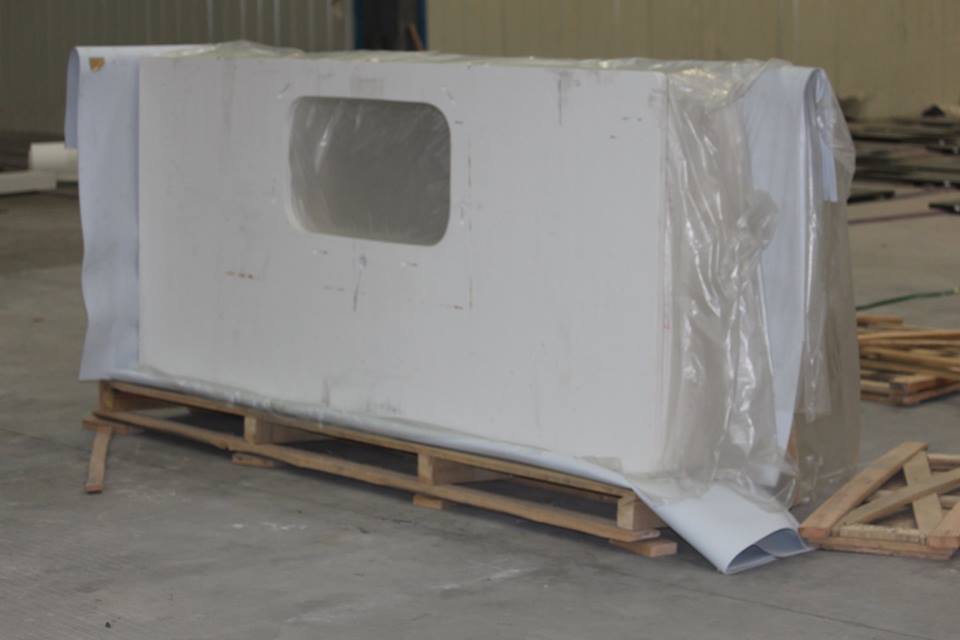
Exceptional Consistency & Design Versatility:
Uniform Appearance: Unlike natural stone with significant variations, quartz slabs offer consistent color and pattern throughout the slab, making design planning and seam matching easier.
Vast Array of Choices: Manufacturers offer an incredible range of colors, patterns, and finishes (polished, matte, suede, textured). This includes incredibly realistic and stunning imitations of natural marble, granite, concrete, and even terrazzo, often without the drawbacks (like marble's etching).
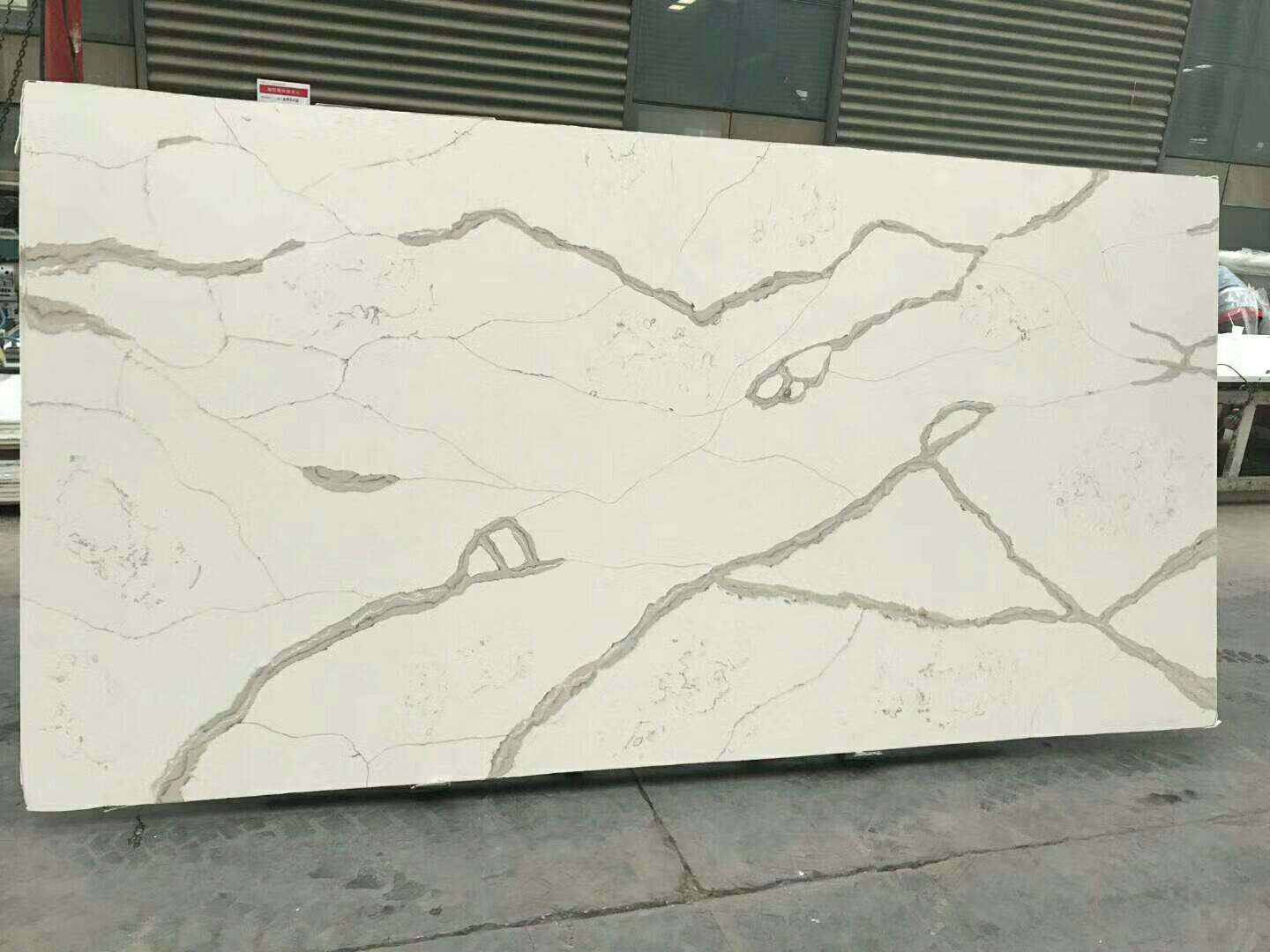
Hygiene & Food Safety:
As mentioned, the non-porous surface prevents bacterial growth, making it a safe and clean surface for direct food contact and preparation.
Good Heat Resistance (with Caution):
Quartz is generally heat resistant for normal kitchen use (like placing hot pots briefly). However, it is not completely heat-proof.
Important: Prolonged or direct exposure to very high heat (e.g., a piping hot pot straight from the oven or stove) can potentially damage the resin binder, causing discoloration (yellowing/browning) or even cracking. Always use trivets or hot pads.
Long Warranties:
Most reputable quartz manufacturers offer extensive warranties (often 10-15 years or even lifetime) against staining, manufacturing defects, and in some cases, even against heat damage under normal use, reflecting their confidence in the product's durability.
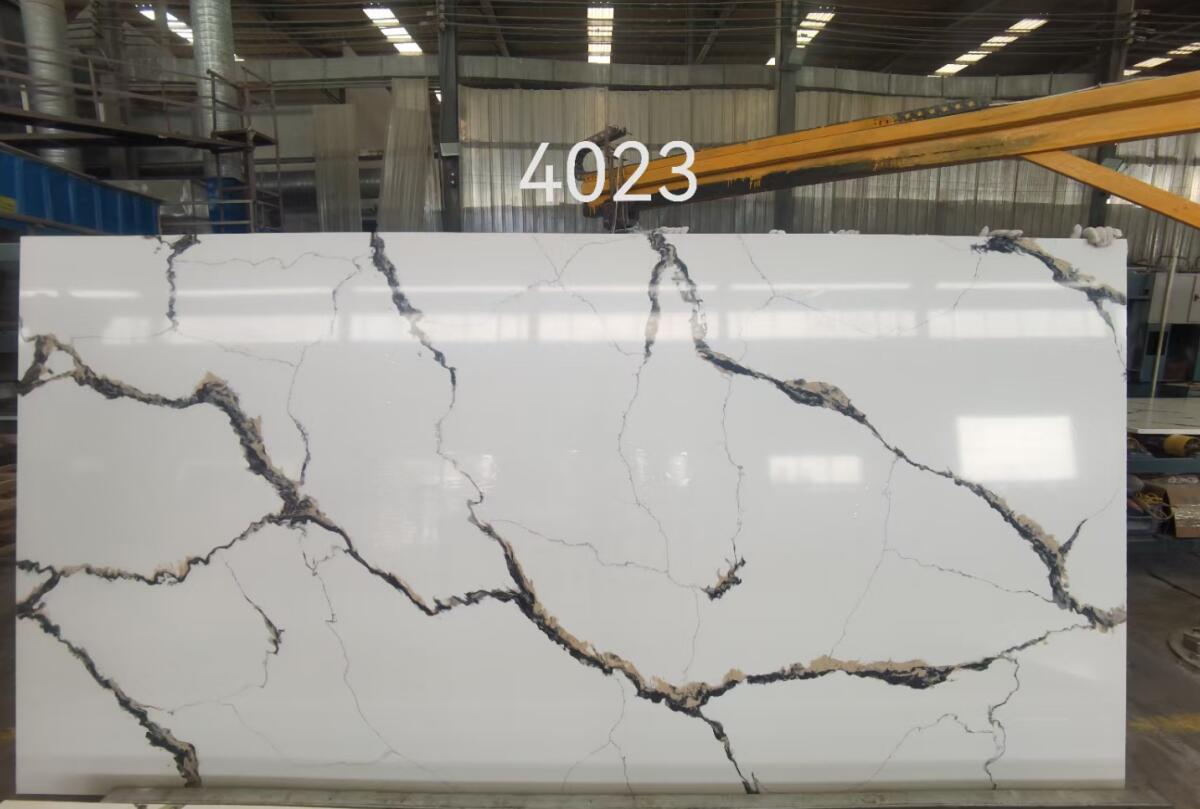
Considerations (for Balance):
Heat Sensitivity: Requires trivets/hot pads consistently (like most countertops, but more critical than granite).
Not Indestructible: While very hard, extreme force can still chip or crack it. Heavy impacts on edges are a risk.
UV Exposure: Some quartz colors (especially lighter ones and those with certain pigments) can fade or discolor slightly if exposed to direct, intense sunlight over long periods (e.g., next to a large sunny window). Check the manufacturer's specs.
Seams: While patterns are consistent, seams might be visible depending on the pattern and installer skill.
Cost: Generally higher cost than laminate or tile, but often comparable to mid-range granite and significantly cheaper than high-end natural stone or exotic materials. It's considered a premium product.
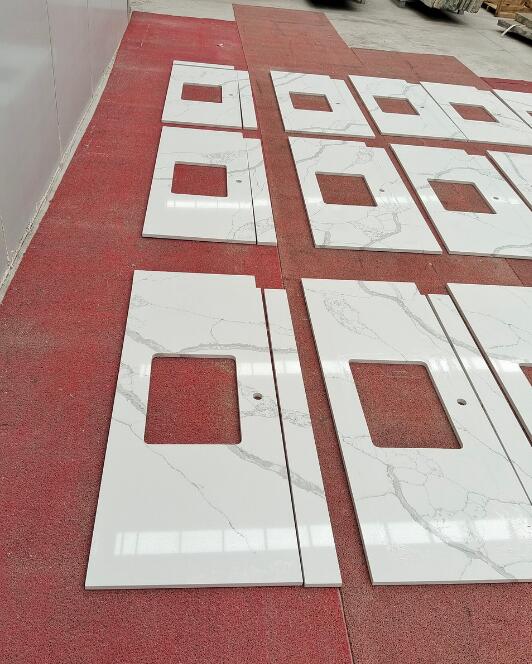
In summary, artificial quartz slabs offer an outstanding combination of:
Extreme durability and scratch/chip resistance.
Superior stain resistance and hygiene (non-porous, no sealing).
Very low maintenance.
Wide range of consistent and beautiful designs.
Long warranties.
This powerful combination of practicality, aesthetics, and longevity makes engineered quartz an excellent, highly recommended choice for the demands and style of a modern kitchen countertop.
